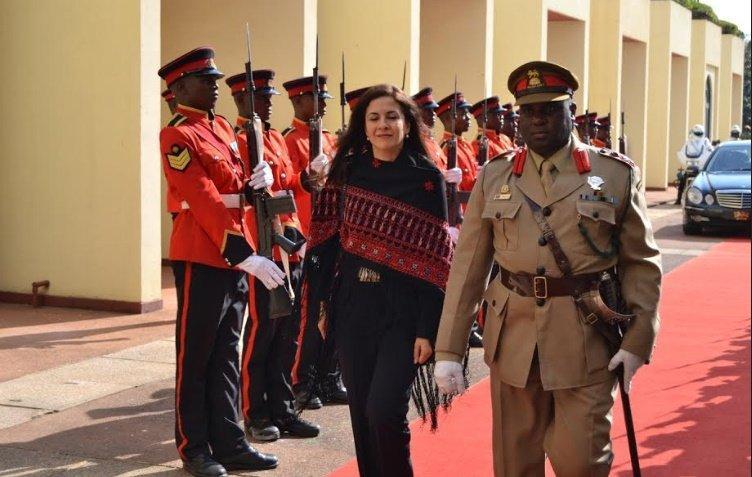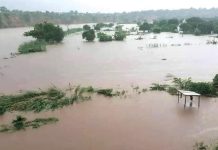Africa-Press – Malawi. If the coronavirus pandemic has provided any lesson, it is this; in a global, interconnected world, the welfare of people everywhere is vital to the well-being and safety of the entire world. Depriving any group of their basic rights – even those thousands of kilometres away – ultimately impacts everyone.
As Palestine’s Special Envoy to Malawi, it was gratifying to hear last week President Lazarus Chakwera affirming Malawi’s support for an end to the Israel occupation of Palestine and the establishment of Palestinian State alongside Israel. President Chakwera made the comments in a meeting with me as I handed him a letter of protest on behalf of Palestinian president, Mahmoud Abbas, against the announcement that Malawi was to follow Donald Trump’s lead and open its embassy to Israel in the occupied city of Jerusalem.
While the city of Jerusalem is sacred to Christians, Muslims and Jews, it is also steeped in colonialism and the violent dispossession and displacement of indigenous Palestinians. In 1967 when Israel occupied the West Bank (which included East Jerusalem), and the Gaza Strip, it annexed East Jerusalem by forcing the application of Israeli law in the city.
In 1980, Israel formalised this annexation. This was considered as a blatant defiance of international law, which formally prohibits any acquisition of territory by force.
All countries – including the United States – protested this move in the UN Security Council (UNSC) by passing several UNSC resolutions condemning Israel’s annexation of East Jerusalem and prohibiting any unilateral moves that may later the status of the city.
The UN further requested that all states withdraw any diplomatic presence in the holy city. This is why the US and other countries have never moved their embassies to Jerusalem. Most embassies are in Tel Aviv.
The international community – including the US State Department – officially regards East Jerusalem as the capital of Israel and move the US embassy to Jerusalem if therefore illegal in terms of international law.
WW, Palestinians have always maintained that East Jerusalem would be the capital of the future Palestinian State, and this is a central tenet of the two-state solution.
As Donald Trump’s term as US president comes to an end, it is hoped that his destructive policies – both within the United States and internationally – will also be reversed. It is also hoped that those global leaders who caved into Trump’s international relations tactics of coercion, political and economic blackmail and outright bullying will also reverse their policies and return to foreign policy based on the universal principles of justice to ensure global security and peace.
Today, overwhelmingly, nations who have endured the horrors of colonialism reject Israel’s occupation of Palestine. Malawi shouldn’t be an exception to this, particularly since the country has the potential to be a very powerful tool to deliver justice for the Palestinians.
In August 2021, President Chakwera will chair the Southern African Development Community (Sadc). Malawi has also been elected to the UN Human Rights Council for the next three years. Both these positions allow Malawi to take a leadership position in advancing the interests of the Global South, including through the championing of the inalienable rights of the Palestine people.
It is unthinkable, then, that Lilongwe would continue to take a position on Jerusalem that goes against both Sadc and the UN. By moving its embassy to Jerusalem, Malawi would be eroding its international credibility.
What does Malawi stand to gain by violating international law?
Israel portray itself as a positive country, happy to share its agricultural and security technology with African friends. At the same time as I was meeting President Chakwera, Malawi’s Foreign Minister Eisenhower Mkaka, was meeting Israel Prime Minister, Benjamin Netanyahu. Netanyahu promised increased cooperation between Israel and Malawi in areas of agriculture, health and cybersecurity.
However, Israel’s “aid” to Malawi and other African states is not philanthropic. Like apartheid South Africa’s “helpfulness” to other African countries, Israel’s “generosity” is designed to whitewash its occupation of Palestine. Its purpose is to force recipient states to negate their long-standing positions at the UN and African Union on the Israeli occupation of Palestine that are in line with international law.
Prior to Mkaka’s meeting with Netanyahu, Malawi opposed or abstained on all three annual UN votes condemning Israeli treatment of the Palestinians – treatment which many senior South African liberation icons have described as “worse than South African apartheid.”
Surely, the diplomatic repayment that Israel demands from Malawi in return from technological assistant is too high. By continuing on this path, the Malawian government run the risk of isolating itself – not only from its SADC partners – but also from its own people who believe that Middle East policy should be based on international law and justice.
On November 29, much of the world will observe International Day of Solidarity with the Palestinian People – a UN-designated commemoration that provides an opportunity for the international community to focus its attention on the fact that the question of Palestine remains unresolved and that the Palestinian people have yet to attain their state.
In a world where most serious challenges need to be dealt with on a global level (whether the Covid-19 pandemic, climate change, or increasing poverty), no nation stands to win if it defies the international system, built on universal human principles.
If all states pick and choose what laws and resolutions to respect, then all we are left with is a law of the jungle which benefits no-one but the most powerful.






